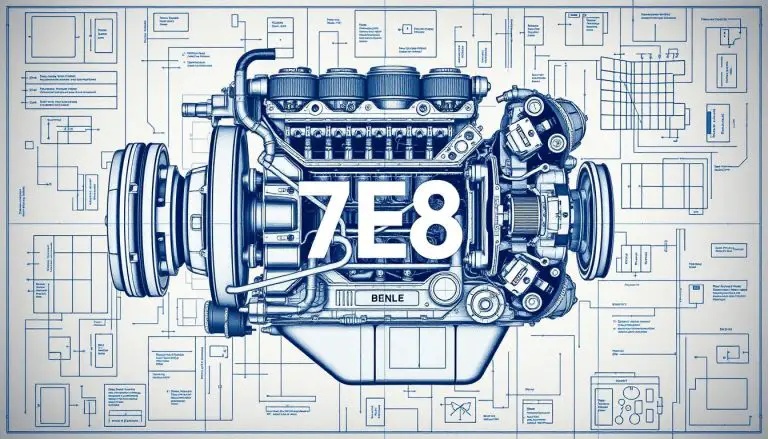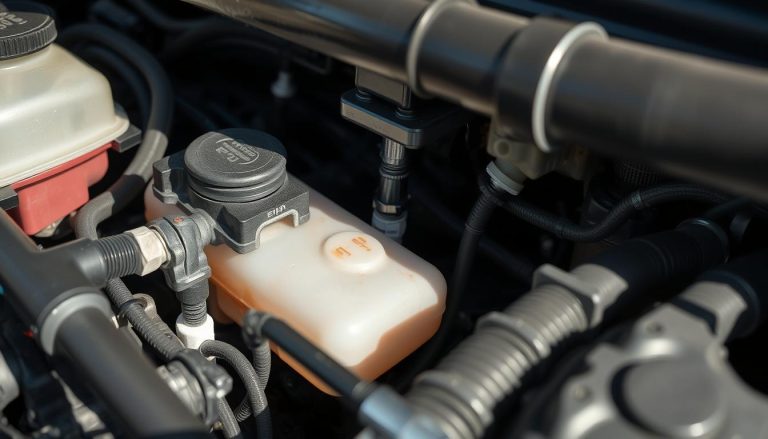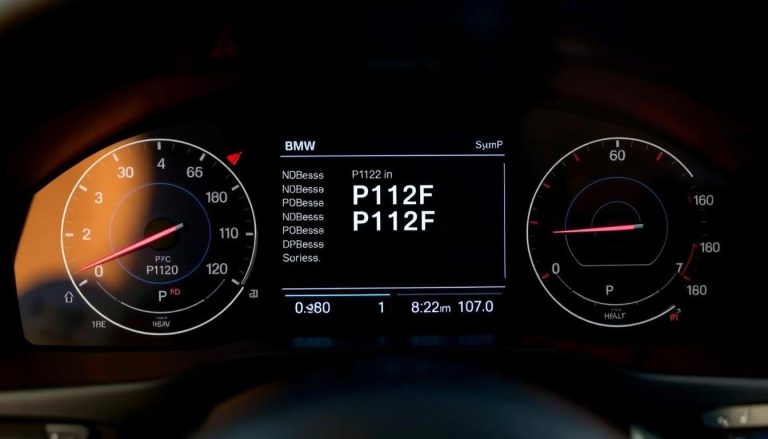If you’ve ever encountered the P0278 code while driving, you know it can be a bit of a headache. This elusive error code signals that something isn’t right with your engine’s performance, specifically related to Cylinder 6. But what does this mean for you as a driver?
Understanding the ins and outs of the P0278 code is essential for maintaining your vehicle’s health and ensuring safe travels on the road. From causes and symptoms to diagnosis and repair solutions, we’ll dive deep into everything you need to know about this pesky cylinder contribution/balance fault.
What does the P0278 code mean?
The P0278 code indicates a specific issue related to Cylinder 6 in your engine. This diagnostic trouble code (DTC) signals a contribution or balance fault, meaning that cylinder isn’t performing as expected compared to the others.
In simpler terms, it points to an imbalance in power output among the cylinders. Each cylinder should produce similar performance levels for optimal engine efficiency. When one falls short, it can lead to increased emissions and decreased fuel economy.
This fault is typically detected by the vehicle’s onboard computer system through various sensors monitoring each cylinder’s performance. If Cylinder 6 is struggling to keep up with its counterparts, you’ll receive this warning code on your dashboard. Addressing this issue promptly is crucial for maintaining overall vehicle health and functionality.
What parts can be affected by P0278 code ?
The P0278 code primarily impacts the fuel injection system. Specifically, it can affect the fuel injector for cylinder 6. A malfunctioning injector may deliver an improper amount of fuel, disrupting engine performance.
Additionally, issues with wiring or connectors related to this particular cylinder can contribute to the fault. Damaged wires or poor connections may lead to signal loss and incorrect readings.
Another potential area affected is the Engine Control Module (ECM). This critical component manages how much fuel enters each cylinder based on various inputs. If it’s not functioning correctly, you might see a cascade of problems stemming from a simple imbalance in one cylinder.
Compression issues within the engine itself could also be at play. Low compression in cylinder 6 might result from worn piston rings or valves that are not sealing properly. Each part plays a role in maintaining balance throughout your vehicle’s engine system.
What are the possible causes of a P0278 code?
The P0278 code typically points to issues related to cylinder 6’s contribution or balance within the engine. Various factors could lead to this problem.
One common cause is a malfunctioning fuel injector. If it’s clogged or leaking, cylinder 6 may not receive the proper amount of fuel needed for optimal performance.
Another potential source of trouble is low compression in that specific cylinder. This can stem from worn piston rings, damaged valves, or even head gasket failure.
Additionally, problems with the ignition system—like faulty spark plugs or coils—can interfere with combustion efficiency in cylinder 6.
An electrical issue might also come into play. Wiring problems such as shorts or corroded connectors can disrupt signals between components and trigger the P0278 code.
Each scenario requires careful evaluation to pinpoint the exact root cause effectively.
What are the common symptoms of a P0278 code?
When your vehicle throws a P0278 code, it can manifest through various symptoms that signal an issue with cylinder 6. One of the most noticeable signs is a rough idle. The engine may feel unstable or vibrate more than usual when at a standstill.
You might also experience reduced engine performance. Acceleration could become sluggish, making driving less responsive and enjoyable.
Another symptom to watch for is increased fuel consumption. If you find yourself refueling more often without changing your driving habits, this could be linked to the fault in cylinder contribution.
Additionally, illuminated warning lights on the dashboard are common indicators. The check engine light may stay lit, prompting further investigation into underlying issues related to the P0278 code.
What are the diagnostic steps for a P0278 code?
Diagnosing a P0278 code requires a systematic approach. Start by using an OBD-II scanner to confirm the code and check for additional trouble codes. It’s crucial to gather as much data as possible.
Next, inspect the vehicle’s wiring and connectors related to cylinder 6. Look for signs of damage or corrosion, which could lead to faulty readings.
After that, evaluate the fuel injector for cylinder 6. A malfunctioning injector can cause balance issues in engine performance.
Perform a compression test on cylinder 6. Low compression can indicate mechanical problems affecting contribution levels.
Consider checking engine timing and vacuum leaks that may impact cylinder operation. Each step provides insights into potential causes behind the P0278 code, helping narrow down repairs effectively.
How serious Is the P0278 Code? Can I continue driving with the P0278 code?
The P0278 code indicates a cylinder 6 contribution or balance fault, which means that the engine’s performance is compromised. Ignoring this code can lead to bigger issues down the road.
Driving with a P0278 code is not advisable. It suggests that one of your cylinders isn’t functioning properly, potentially causing rough idling and reduced power. This imbalance can strain other components in your vehicle.
You might notice decreased fuel efficiency as well. If left unaddressed, this could result in costly repairs later on.
While you may be able to drive short distances with caution, it’s best to have your vehicle checked by a professional promptly. Addressing problems early helps prevent further damage and ensures safer driving conditions.
What are the repair solutions for a P0278 – Cylinder 6 Contribution/Balance Fault ?
Repairing a P0278 code often requires a systematic approach to identify the root cause of the cylinder 6 contribution or balance fault.
One common solution is to replace faulty fuel injectors. If an injector isn’t delivering sufficient fuel, it can lead to imbalances in engine performance.
Another potential fix involves addressing any vacuum leaks in the intake manifold. These leaks can disrupt air-fuel mixture ratios and trigger this error code.
Sometimes, issues with ignition coils may also be at play. Replacing worn-out coils should restore proper firing conditions for all cylinders.
In cases where there are problems with compression, performing a compression test on cylinder 6 will provide insights into whether piston rings or valves need attention.
Always ensure that your vehicle’s engine control unit (ECU) software is updated as outdated programming can contribute to diagnostic trouble codes like P0278.
What other codes may be related to P0278?
When dealing with the P0278 code, several other diagnostic trouble codes (DTCs) may pop up. These related codes often provide additional insights into engine performance issues.
Codes like P0269 and P0270 indicate problems with cylinder contribution or balance for cylinders 5 and 6, respectively. If you notice these in conjunction with P0278, it’s a strong indication of a broader issue affecting your engine’s firing sequence.
Additionally, codes such as P0300 through P0306 pertain to misfires in various cylinders. They can highlight whether the problem is localized to cylinder six or if multiple cylinders are affected.
Another set of relevant DTCs includes fuel system-related codes like P0171 and P0174. These refer to lean conditions which could contribute to imbalance issues across different cylinders.
Addressing these interconnected faults early can prevent more severe damage down the line.
How much does it cost to diagnose and repair a P0278 code?
The cost to diagnose and repair a P0278 code can vary widely based on several factors. Typically, diagnostic fees range from $75 to $150 at most auto repair shops. This fee covers the technician’s time and expertise in identifying the issue.
Once diagnosed, repairs might involve replacing faulty fuel injectors or addressing issues with engine sensors. Depending on the part, you could spend anywhere from $100 to over $1,000 for parts and labor combined.
If additional codes are present, this may increase overall expenses as more extensive diagnostics could be needed. Always obtain a detailed quote before proceeding with any repairs so you know what to expect financially. It’s wise to consider costs from multiple mechanics for competitive pricing without sacrificing quality service.
How long does it take to diagnose and repair code P0278?
Diagnosing and repairing the P0278 code can vary significantly depending on several factors. Typically, a thorough diagnostic process may take anywhere from one to two hours. This includes scanning for codes, inspecting components, and possibly conducting tests.
Once the diagnosis is complete, repair times will differ based on what needs fixing. If it’s a simple issue like a faulty injector or wiring problem, repairs might be quick—around one hour. However, if more extensive work is needed—like replacing an entire fuel rail—the process could extend to several hours or even days.
The technician’s experience also plays a crucial role in how quickly they can pinpoint the issue and execute repairs effectively. Always communicate with your mechanic about expected timelines for both diagnosis and repair to avoid surprises later on.
Is the P0278 code specific to certain car makes or models?
The P0278 code is not limited to specific car makes or models. It can appear in a variety of vehicles, particularly those with V6 or V8 engines.
Manufacturers like Ford, Chevrolet, Dodge, and Toyota are often associated with this fault due to their engine designs. However, any brand that uses similar fuel injection systems may experience the P0278 code.
The frequency of this issue can vary from one manufacturer to another. Some brands might have more robust systems that prevent such faults, while others could be more prone to them.
Understanding your vehicle’s design helps in identifying potential problems early on. Always refer to your owner’s manual for specific information related to your make and model when dealing with codes like P0278.
How can I avoid a P0278 code?
Preventing a P0278 code starts with regular maintenance. Keep up with oil changes, filter replacements, and other routine tasks to ensure your engine runs smoothly.
Monitor the fuel system as well. Use high-quality fuel to avoid contaminants that can affect cylinder performance. A clean fuel injector helps maintain proper balance across all cylinders.
Pay attention to any unusual sounds or vibrations from your vehicle. Early detection of issues can help prevent more significant problems down the line.
Be proactive about addressing check engine lights promptly. Ignoring early warning signs might lead you directly into a P0278 situation later on.
Consider investing in diagnostic tools for DIY enthusiasts. These devices offer insights into your vehicle’s health and allow you to catch potential trouble before it escalates.
What happens if you ignore a P0278 code?
Ignoring a P0278 code can lead to significant problems for your vehicle’s performance. The cylinder 6 contribution/balance fault indicates that the engine control module (ECM) has detected an imbalance in how the cylinders are functioning. If left unaddressed, this could result in decreased fuel efficiency and increased emissions.
Over time, you may notice more severe symptoms such as rough idling, misfires, or even stalling while driving. These issues not only compromise your safety but also put additional strain on other components of your vehicle, potentially leading to costly repairs down the line.
Additionally, continuing to drive with a P0278 code may trigger further diagnostic trouble codes (DTCs). This complicates diagnostics and can lead mechanics on a wild goose chase trying to identify multiple underlying problems. Ignoring this issue could ultimately require more extensive repairs than if it had been addressed early on.
It’s advisable to take action when you see a P0278 code rather than waiting for it to escalate into bigger mechanical failures. Prioritizing timely diagnosis and repair will help maintain your vehicle’s health while ensuring that you’re driving safely and efficiently.


